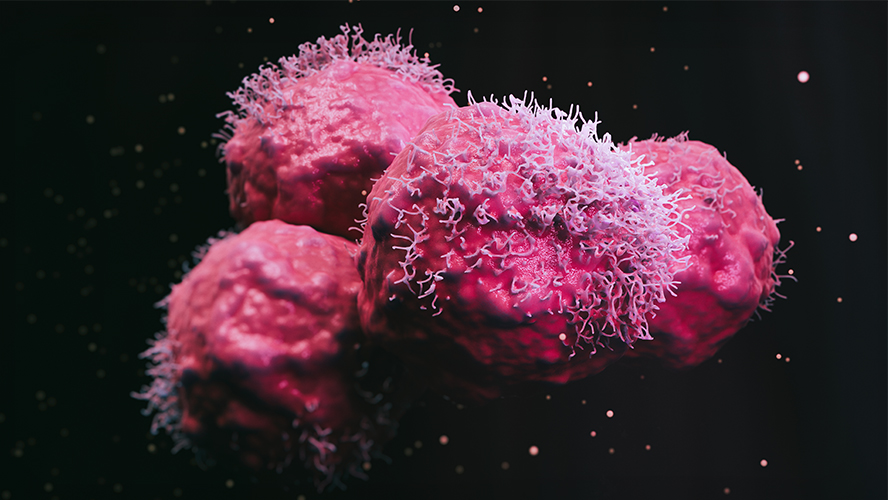
Researchers from UHN’s Princess Margaret Cancer Centre have demonstrated how specific cancer cells in a tumour are responsible for driving its growth and spread (also known as cancer propagation).
Despite advances in molecular profiling of cancer cells, disease progression and treatment resistance remain major challenges. This is due in part to the ability of cancer cell clones—groups of cancer cells derived from a single cell—to change their identity and behaviour, a phenomenon known as plasticity.
Scientists have long known that not every cell in a tumour has the ability to regrow the cancer. Only a small number of special cells—called clonogenic cells—can actually start new tumours and keep the cancer going. To cure the disease, these cells must be eliminated. In solid tumours (like breast or lung cancer), finding and studying these key cells has been difficult because they do not have clear markers.
In this study, researchers used a new technique involving genetic barcodes—unique DNA tags that allow scientists to track the descendants of individual cancer cells. Using this method along with advanced single-cell sequencing techniques, they studied over 20,000 individual breast cancer cell clones from 26 patient-derived breast cancer laboratory models.
By tracking these barcoded cells as they divided, the team discovered that fewer than 0.01% of clones were able to regrow tumours. These rare clones divided rapidly and expanded to become the dominant cell type. These clones were also able to reproduce the full gene expression profile of the original cancer model, indicating their ability to drive tumour growth.
In models of basal breast cancer—an aggressive subtype—the tumour-propagating clones showed high plasticity, changing their function and gene activity. The team also identified two distinct cell populations with different clonal growth behaviours and biological features. These results show that propagating clones have the ability to evolve, adapt, and grow into dominant clones that eventually become the majority, all originating from a single barcoded cell.
These findings deepen our understanding of how cancers evolve and resist treatment. This work could lead to therapies that better target these tumour-driving clones, with the approach used here potentially applicable to other solid cancers.
Dr. Long Nguyen, Scientist at Princess Margaret Cancer Centre and Assistant Professor in the Department of Medicine and Medical Biophysics at the University of Toronto, is the first and lead corresponding author of the study.
Dr. Carlos Caldas, Professor of Cancer Medicine at the University of Cambridge, is the co-corresponding author of the study.
This work would not have been possible without the generosity of all the patients who donated samples for the development of breast cancer laboratory models.
This work was supported by The Princess Margaret Cancer Foundation, the Hold’em for Life Early Career Professorship in Cancer Research from the Temerty Faculty of Medicine at the University of Toronto, the European Society For Medical Oncology, Conquer Cancer, The ASCO Foundation, the J.P. Bickell Foundation, the Marathon of Hope Cancer Centres Network, Cancer Research UK, UK Research and Innovation, the National Institute for Health and Care Research, European Research Council, and the Cambridge Commonwealth, European and International Trust.
Dr. Carlos Caldas received research grants (administered by the University of Cambridge) from Genentech, Roche, AstraZeneca, and Servier.
Nguyen LV, Eyal-Lubling Y, Guerrero-Romero D, Kronheim S, Chin SF, Manzano Garcia R, Sammut SJ, Lerda G, Lui AJW, Bardwell HA, Greenwood W, Shin HJ, Masina R, Kania K, Bruna A, Esmaeilishirazifard E, Kolyvas EA, Aparicio S, Rueda OM, Caldas C. Fitness and transcriptional plasticity of human breast cancer single-cell-derived clones. Cell Rep. 2025 May 27;44(5):115699. doi: 10.1016/j.celrep.2025.115699. Epub 2025 May 12.




